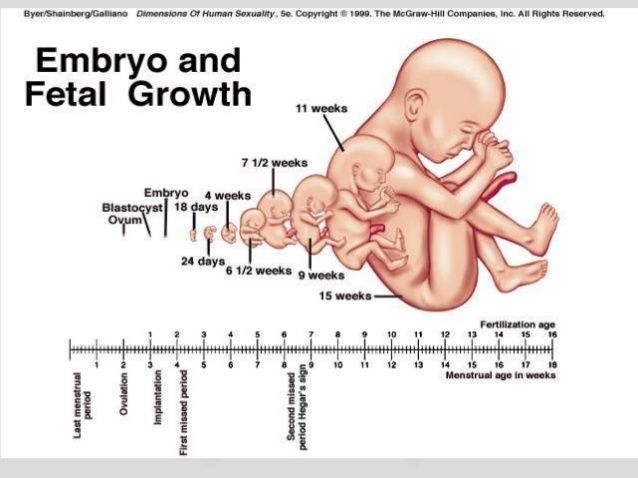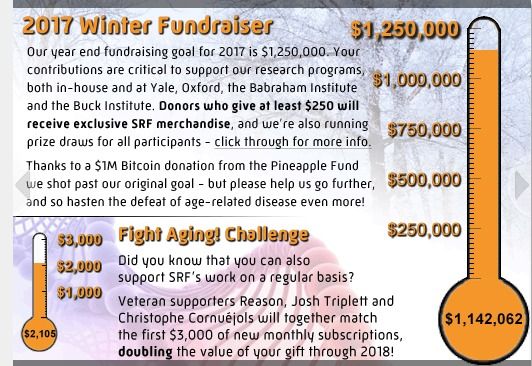https://www.spreaker.com/user/talk4media/beyond-confidence-12-18-2017
Category: life extension – Page 620

For the last time: rejuvenation is not immortality
Whether or not immortality is possible, whether or not one would like it for oneself, it’s important to keep in mind that it is not what biomedical research against ageing is about.
When doing science, it is crucially important to have clear, unambiguous definitions. These definitions must be firmly established to avoid confusion and misunderstandings and possibly to prevent people from going around telling everyone that you’re working on something that you’re actually not.
The I-word
It’s not uncommon, especially for outsiders of a given field, to use an inappropriate word to indicate a more complex concept than the word itself conveys—maybe because they think that the two are close enough or possibly because they just don’t see the difference.
Can we reverse the ageing process?
Good stuff from Aubrey. One person is a deathist, another is a maybe, the other is pro-life extension.
Turning back the clock and undoing the ravages of time. Something we’ve probably all wondered about — but could it become reality? Or are we all just wishing our lives away?
We may soon be able to stop or even undo the ageing process. By purging the body of so-called ‘retired cells’, scientists say we could look younger, live longer, and defeat disease. Is this science’s answer to the fabled fountain of youth?
At the Roundtable was Aubrey de Grey, Biomedical gerontologist and Chief Science Officer at Sens Research Foundation; Lara Marks, a visiting Research Associate at University College London and Historian of Medicine at King’s College London; Professor Ilaria Bellantuono, Stem cell biologist and Professor in musculoskeletal ageing at the University of Sheffield and journalist Salman Shaheen.
Roundtable is a discussion programme with an edge. Broadcast out of London and presented by David Foster, it’s about bringing people to the table, listening to every opinion, and analysing every point of view. From fierce debate to reflective thinking, Roundtable discussions offer a different perspective on the issues that matter to you. Watch it every weekday at 15:30 GMT on TRT World.
Subscribe: http://trt.world/subscribe
Livestream: http://trt.world/ytlive
Facebook: http://trt.world/facebook


Embryos have full human regeneration and possibly radical life extension
Nextbigfuture interviewed Michael West, CEO of the startup AgeX for nearly three hours today. The key to human regeneration is from week 3 to week 8 after fertilization of the egg when we are an embryo. In week one and week two, we are a zygote. After week, we are fetus.
Nextbigfuture will follow up this article with several more articles with information from the interview. This article will provide the core of the AgeX approach to full regeneration and radical life extension.

Conference announces Program and Speakers
2018 announces Program and Speakers!
This conference is focused on the cellular and molecular repair of age-related damage as the basis of therapies to bring aging under full medical control, It will mirror the structure of SENS, with sessions devoted to each strand and to the enabling technologies that multiple strands will rely upon. Sessions will cover a wide range of topics across the damage-repair spectrum.
Further details are given below:
Accelerating rejuvenation therapies to repair the damage of aging. Berlin, March, 15 — 17.
Great Support During Project For Awesome 2017
The 2017 Project for Awesome (P4A) has ended, and what a weekend it has been! We have had a significant number of videos created in support of our work, and the encouragement from the community has been superb. It is very inspiring to hear what people have to say about the importance of our work and why they appreciate the work we do. Today, we wanted to have a look at some of the great videos created by the LEAF team and our awesome community.
LEAF President Keith Comito led the charge during P4A and talks about our motivations and our vision for a world without age-related diseases. Science is making huge leaps in progress, and we no longer have to accept age-related diseases as inevitable.

The Holidays are almost here and with it the last days of the winter fundraiser!
Thanks to the Pineapple Fund we have now raised $1,142,000 of our $1,250,000 goal this year. We are very close now to the finish line and with your help, we can win!
To help us reach our goal visit: http://www.sens.org/donate
We will be using these donations to support our research programs both at the SENS Research Foundation Research Center in Mountain View, as well as our programs at Yale, the Buck Institute, the Babraham Institute, and Oxford.

We Can Have Modest Healthspan Or We Could do Better
The topic of healthspan is increasingly being raised in the popular media, but what does it really mean? Simply put, healthspan means the period of your life in which you remain healthy and free from age-related diseases. The Roman poet Virgil once said “The greatest wealth is health”, so the concept of healthspan was something valued as far back in time as then.
Today, we are going to take a look at how we have been trying to increase human healthspan in the past and what science is doing now to take us to new frontiers of health through a new approach to medicine called rejuvenation biotechnology.
So, why is healthspan becoming such a popular saying, and why is it appearing frequently in articles and in other media now? Quite simply, the advances in our understanding of the aging processes and our ability to do something about them has reached the point at which taking measures to increase healthspan is now plausible.
Liz Parrish — Future Therapies
Full Interview ► https://goo.gl/YYdVUH
BioViva ► http://bioviva-science.com
Liz Parrish is the Founder and CEO of BioViva Sciences USA Inc. BioViva is committed to extending healthy lifespans using gene therapy. Liz is known as “the woman who wants to genetically engineer you,” she is a humanitarian, entrepreneur and innovator and a leading voice for genetic cures. As a strong proponent of progress and education for the advancement of gene therapy, she serves as a motivational speaker to the public at large for the life sciences. She is actively involved in international educational media outreach and sits on the board of the International Longevity Alliance (ILA). She is the founder of BioTrove Investments LLC and the BioTrove Podcasts which is committed to offering a meaningful way for people to learn about and fund research in regenerative medicine. She is also the Secretary of the American Longevity Alliance (ALA) a 501©(3) nonprofit trade association that brings together individuals, companies, and organizations who work in advancing the emerging field of cellular & regenerative medicine with the aim to get governments to consider aging a disease. Parrish received two kinds of injections, which were administered outside the United States: a myostatin inhibitor, which is expected to prevent age-associated muscle loss; and a telomerase gene therapy, which is expected to lengthen telomeres, segments of DNA at the ends of chromosomes whose shortening is associated with aging and degenerative disease.
——-
Facebook: https://www.facebook.com/agingreversed
Tumblr: http://agingreversed.tumblr.com
Twitter: https://twitter.com/Aging_Reversed